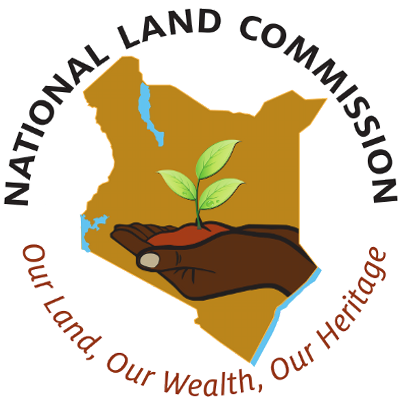Nairobi
9th October, 2023
National Land Commission (NLC) has today held a successful stakeholders public participation meeting on the Draft Recommendations towards the review of Sessional Paper No. 3 of 2009 on the National Land Policy.
The session which was attended by 152 participants, sought to gather public views on NLC’s draft recommendations.
As enshrined in the constitution under Article 67 (2) (b) of the Constitution of Kenya, 2010, the Commission is required “to recommend a national land policy to the national government.”
The virtual meeting was officiated by NLC chairman Gershom Otachi who explained that the recommendations focus on among other themes Land Use Planning, Land Tenure and Rights, Conflicts and Dispute Resolution, Historical Land Injustices, Land Administration and Management, Land Information Management, Food Security and Agriculture.
Mr Otachi stated that the public participation forms part of a long process to be undertaken towards attainment of a revised National Land Policy.
Commissioner Hon. Esther Murugi who chairs the Land Use Planning & Research Committee delved into the importance of public participation as an overarching national value and principal contained in Article 10 of the Constitution of Kenya.
“Participation of the public is the deliberative process by which citizens, civil society organizations and government actors are involved in policy-making and implementation before decision are made. This is the reason we are virtually gathered here,” she noted.
She stated that for formulation of effective and relevant recommendations on National Land Policy, the Commission is looking forward to public expert views, experiences and opinions.
“This will go a long way to facilitate effective land reforms, and safeguard land as our heritage for prosperity,” she said.
On her part, CEO Kabale Tache explained that the recommendations on the National Land Policy for Kenya, seeks to guide the country towards efficient, sustainable and equitable use of land for prosperity and posterity.
She asserted that the recommendations seek to define the key measures required to address the critical issues of land administration, access to land, land use planning, environmental emerging issues among others multiple challenges facing land sector.
“These recommendations aim at ensuring that all land is put into a sustainable productive use, as well as facilitating the implementation of key principles of land use including conservation,” said Kabale.
Kabale implored that the first land Policy outlived its lifespan in 2019, necessitating the review.
“The policy provided for a review after 10 years and we are now 14 years into the policy,” she said.
Land Use Planning and Research Director, Charles Kagema, in his presentation noted that among other land use planning aspects, the revised land policy will prioritize land use planning as a pathway to facilitate efficient use of land and other related natural resources.
Also, it will ensure institutional capacity and good governance to institute plan led development in the country.
“Land use policy to embed and safeguard environmental conservation, riparian and buffer zones as planned development zones both in urban and rural settings,” said Kagema.
Deputy Director Research, Dr. Mary Wandia in her presentation, called for an establishment of a multi stakeholder standing committee to ensure the transitions from manual to digital system is fully achieved.
“The committee would also be necessary for system improvement in light of a dynamic environment particularly technological changes and policy regimes,” she emphasized.
On land tenure and rights, Deputy Director Ben Opaa reiterated that the revised policy would fast track vesting of public land acquired through compulsory land acquisition.
According to Opaa, it would also demystify underlying myths and retrogressive perceptions and attitudes relating to women’s access to control and own land.
The policy also seeks to among other issues, reconcile the overlapping roles and responsibilities between Ministry of Lands and National Land Commission regarding preparation and execution of leases.
